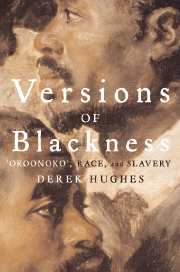DISCUSSIONS OF COLONIALISM
Published online by Cambridge University Press: 05 June 2012
Summary
Thomas thorowgood (d. circa 1669) was a Norfolk clergyman. He supported John Eliot, the proselytizer of the Native Americans, and corresponded with the Jewish scholar Manasseh ben Israel. Iewes in America propounds the tenacious theory that the Native Americans were the lost tribes of Israel, a theory that had been advanced by early Spanish writers, such as Diego Durán, and by Jewish scholars, such as Antonio Monterinos and ben Israel (and persisting in the beliefs of the Mormons). Thorowgood documents and deplores Spanish atrocities in the New World, citing Las Casas and other authorities, though he uses the atrocities as evidence that the Native Americans bear the curse placed upon the Jews. His primary aim is to argue that the Native Americans are ready for conversion to Christianity, though in the process he writes about the ethics of colonization. His pamphlet was answered by Hamon L'Estrange (1605–1660), brother of the royalist polemicist Roger L'Estrange. L'Estrange documents the fancifulness of Thorowgood's parallels between Native American and Jewish customs and stresses the diversity of Native American culture. He also argues that it is immoral to take land from native peoples.
The third passage, from Thomas Hobbes's Leviathan (1651), expresses a quite different viewpoint and takes the discussion of colonialism outside the religious framework in which we have so far predominantly seen it.
- Type
- Chapter
- Information
- Versions of BlacknessKey Texts on Slavery from the Seventeenth Century, pp. 353 - 355Publisher: Cambridge University PressPrint publication year: 2007



